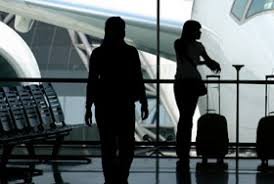Morocco Visa Information
Morocco Visa Requirements: Moroccan visa application form information on Morocco visas for travel, tourist visa, visitor / transit visa, student visa. Moroccan embassy address, information on Morocco immigration procedures for US citizens, Canadians, Indians, Australians, UK, EU citizens.Learn4good provides general information on study, travel, work visa and business visa requirements and the addresses of embassies worldwide. You should contact your local embassy or consulate for the most up-to-date information or visa forms.



For Hotels, Hostels, Car Hire, Jobs and Schools in this country, see the menu options above. See our Travel Forum to create a travel topic and ask questions to fellow travelers.
Who requires a Visa?
What documents will be required?
Time required to issue a Visa
How do I apply?
What is the cost of a Visa?
How long is the Visa valid for?
Embassy contact information
Arabic Language Course in Morocco
Travel Guide
Who requires a visa?
Citizens holding passports of the following countries do not need a visa to enter the Kingdom of Morocco (If your stay is longer than 90 days, a resident permit is required and can be issued by the Police Department of your place of residence in Morocco): Algeria – Andorra – Argentina – Australia – Austria – Bahrain – Belgium – Brazil – Bulgaria – Canada – Chile – Congo Brazzaville – Croatia – Cyprus -Cote d’Ivoire – Czech Republic – Denmark – Estonia – Finland – France – Germany – Great Britain – Greece – Guinea (Conakry) – Hong Kong – Hungary – Iceland – Indonesia – Ireland – Italy – Ivory Coast – Japan – Kuwait – Latvia – Libya – Liechtenstein – Lithuania – Luxemburg – Mali – Malta – Mexico – Monaco – Netherlands – New Zealand – Niger – Norway – Oman – Peru – Philippines – Poland – Puerto Rico – Qatar – Romania – Russian Federation – Saudi Arabia – Senegal – Singapore (They can stay one month without visa) – Slovakia – Slovenia – South Korea – Spain – Sweden – Switzerland – Tunisia – Turkey – United Arab Emirates – United States of America – Venezuela.
Citizens from countries not listed above do need a visa.
What documents will be required?
The following documents are required for Tourist Visa:
Application form
Your original valid passport + copy of the first page with photo
04 passport size colour photos.
Copy of your detailed provisional flight itinerary.
Employment certificate from your employer
For students, copy of a recent letter from the school confirming that the applicant is attending the school.
For business owners, copy of the last Income Tax as substitute of the employment letter.
Hotel provisional reservation or notarized Letter of Invitation from your sponsor in Morocco.
For applicants married to Moroccan citizens, a copy of the marriage certificate plus a copy of the Moroccan passport or national ID of the Moroccan spouse can be a substitute for the invitation letter or for the hotel reservation.
Travel Insurance.
PASSPORTS: Passport valid for at least 6 months from date of entry required by all.
Note:
(a) Children up to and including 16 years may travel on their parents’ passport, but must have photographs included in these passports by the relevant passport authorities.
(b) All temporary travel document holders need to get clearance from Morocco, and this may take up to 2 months. Apply at nearest Consulate or Consular Section of Embassy for further details.
Time required to issue visa:
Typically, a visa takes anywhere from 2 days to 15 days to process in the Morocco Embassy/Consulate depending on the consulate that we need to send the application to and whether you choose to “rush” your Morocco visa.
How do I apply?
Application to: Consulate (or Consular section at Embassy); see Contact Addresses section.
Application requirements:
(a) One completed application form.
(b) Four passport-size photos taken within the previous 6 months.
(c) Passport (valid for at least 6 months from date of exit out of Morocco, and with at least one blank page), with a photocopy of the relevant data pages.
(d) Fee (payable by postal order only).
(e) Evidence of employment, enrolment as a student or bank statements.
(f) Photocopy of flight ticket(s).
(g) Photocopy of hotel reservation. (h) Self-addressed, stamped, registered envelope for postal applications (for those living outside London only).
What is the cost of a visa?
Single-entry: £16; Double-entry or Multiple-entry (both business only): £25. Prices may fluctuate in accordance with the exchange rate and must be paid by postal order only.
How long is the visa valid for?
Entry visas are valid for 3 months; visitors wishing to stay longer should apply to the local police station within 15 days of arrival. For other visa enquiries, contact the Embassy (see Contact Addresses section).
Embassy contact information:
Please contact the nearest Embassy of Morocco for information on what documentation you may require to enter Morocco.
Disclaimer: The contents of these pages are provided as an information guide only, in good faith. The use of this website is at the viewer/user’s sole risk. While every effort is made in presenting up-to-date and accurate information, no responsibility or liability is accepted by the owners to this website for any errors, omissions, outdated or misleading information on these pages or any site to which these pages connect or are linked.
Source & Copyright: The source of the above visa and immigration information and copyright owner/s is the:
– Ministry of Foreign Affairs and Cooperation, Kingdom of Morocco – URL: www.maec.gov.ma
The viewer/user of this web page should use the above information as a guideline only, and should always contact the above sources or the user’s own government representatives for the most up-to-date information at that moment in time, before making a final decision to travel to that country or destination.
morocco culture,moroccan food,morocco food,moroccan cuisine,morocco beaches,moroccan meal,beaches in morocco,moroccan culture,hercules cave,hercules cave morocco










